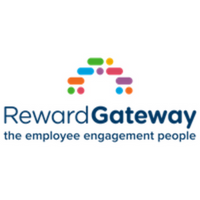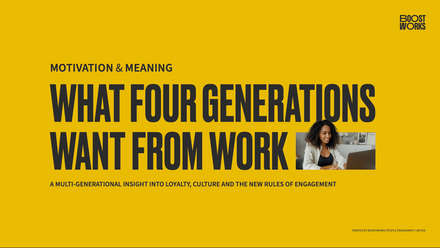Three key steps to more open & honest reward communications
Get our communications right and the business and our employees win, get it wrong and it’s like having a handful of money which you throw into the air and hope that it lands in your employee’s hands. Not the best way to spend your company’s money!

Over my 30 years as a rewards professional I’ve learned first hand how to communicate effectively (and at times ineffectively). For this blog I’d like to focus on one key area, which is open and honest communication, which is a great starting point for any reward communications campaign.
Being open and honest brings trust and engagement
It’s been proven that open and honest communication can have a huge impact on employee trust and ultimately employee engagement. According to the Institute of Leadership & Management (ILM) report titled The truth about trust: Honesty and integrity at work, the single most important driver of trust is openness. It goes onto to say:
“Trust underpins effective working relationships. The more someone trusts a colleague, manager or team member, the greater the likelihood they will co-operate, share information and work effectively together. By increasing trust levels employers can drive significant improvements in performance by motivating staff to commit additional discretionary effort.”
So why don’t more companies focus on open and honest communication? Why do they talk in circles around a topic or an issue and/or completely hide the facts from their employees? What is this really getting the company or their employees? I can tell you what it’s probably getting them, and that is mistrust. The opposite of what the ILM identifies as a critical business factor, and certainly not the results that any company wants and needs to succeed.
So how do you create communication that is open and honest? Well I could write a book on this, but to get you started here are three key tips:
1) Consider each and every word
Words have amazing power. They have the ability to inspire a movement (think of Martin Luther King’s words ‘I have a dream’), give clarity where there is confusion, and calm an unpleasant situation. Poorly crafted words, on the other hand, can have the opposite effect, causing you problems or making things worse.
For this reason, each and every word needs to be considered carefully. Ask yourself, what will they say and mean to my employees? How will they react and feel? Will they create an atmosphere of open and honest communication or an atmosphere of secrets, cloaks and daggers?
To illustrate this let me share with you two messages worded in different ways. The first message is “Sally has left the business with immediate effect”. It sounds like we had to catapult her out the door to protect everyone in the company. And who or what is “the business”? It makes us sound like the mafia. The second message is “Sally left ABC company today”. It gets right to the point and removes the misunderstandings and unnecessary mystery from the message.
2) Be truthful
An integral part of open and honest communication is the principle of being truthful. Buddha said “Three things cannot be hidden: the sun, the moon, and the truth.” He’s so true, for no matter how much we think that we’re hiding things from our employees, in the end they always find out the truth.
And what do you think happens when they find out the truth? It ruins any trust you may have had with them, creating bigger walls between you and your employees and between you and employee engagement.
I faced this challenge recently when we were removing a much-loved employee benefit. Instead of hiding away the rationale for our tough strategic decision we communicated the entire truth, explaining not just what was being changed but why and how we made this important decision. This not only showed our employees that we trusted them with the truth, but prevented a situation of speculation about the change.
3) Be timely
My company’s first HR director Helen Craik once said: “Be as open with your people as you can, as early as you can. Your employees can handle the truth. It’s always the cover up and misinformation that causes the damage, never the culture.”
For this tip I’d like to pick up on the words “as early as you can”. This talks about the timing of your open and honest communication, which is just as important as the message itself.
If you wait too long to communicate the truth then you’ve actually lost the battle. Why? Because by the time you communicate there will be so much speculation and rumours that it will be an uphill or impossible battle to overcome.
Ask yourself, why am I waiting? What harm will it cause if I share information? And do your best to communicate as soon as possible.
My challenge to you is to adopt an open and honest communication approach and mentality at your company as you communicate about your reward programmes. Ask yourself, what do my employees need and what do they deserve to know? Consider each and every word, find ways to be truthful and tell the entire story, and be timely in your communications.
Debra Corey is group reward director at Reward Gateway.
This article was provided by Reward Gateway.
Supplied by REBA Associate Member, Reward Gateway
We help the world's leading companies with an employee engagement platform.







